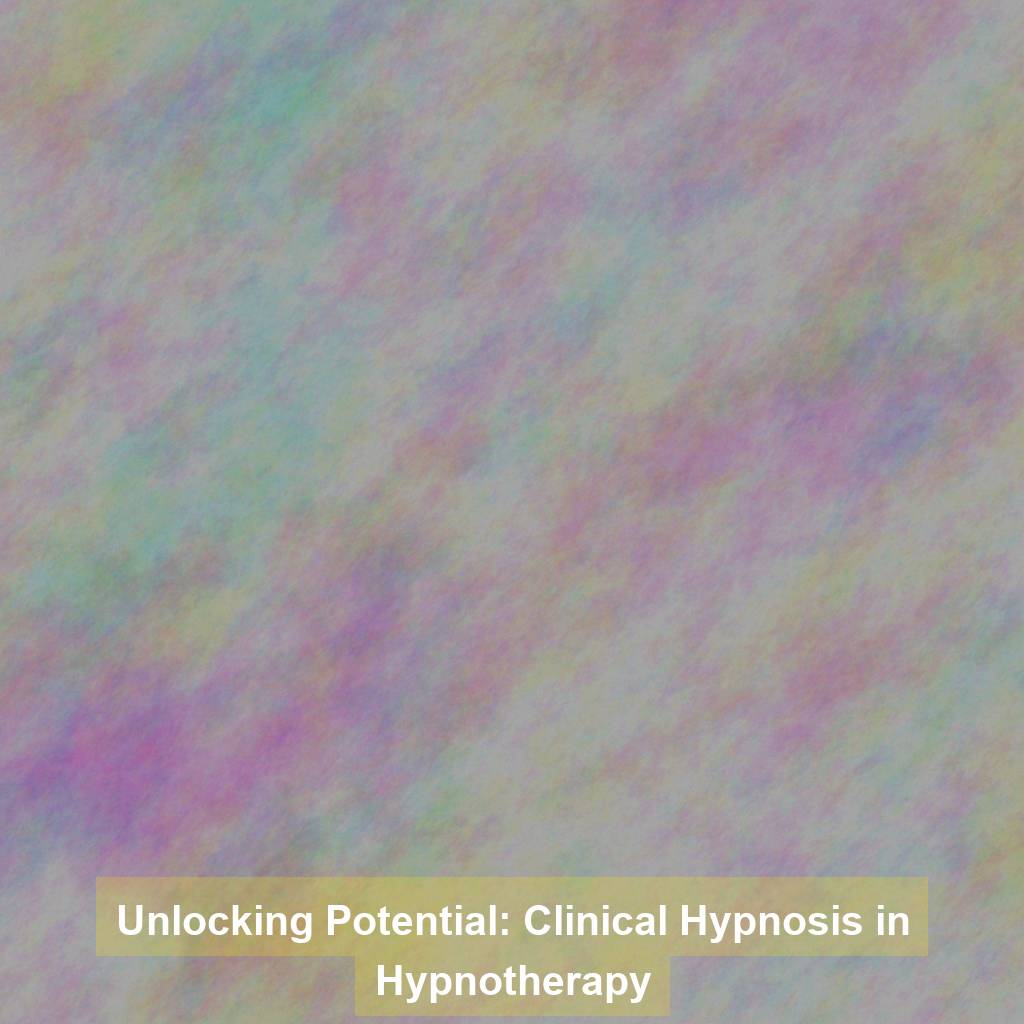As you navigate the complex landscape of the mind, you may find yourself intrigued by the untapped potential that lies within. Clinical hypnosis, often overlooked or misunderstood, offers a fascinating avenue for exploring and unlocking this potential.
The field of hypnotherapy has a rich history, with roots reaching back through the centuries, and the science behind clinical hypnosis continues to reveal new insights into how it can be harnessed for therapeutic purposes. But what exactly does this mean for individuals seeking to address mental health challenges or tap into their own inner resources?
This discussion aims to shed light on the applications, techniques, and ethical considerations surrounding clinical hypnosis in the realm of hypnotherapy.
History of Hypnotherapy
Hypnotherapy has a long and diverse history, dating back to ancient civilizations where hypnotic techniques were used for healing and spiritual purposes. The ancient Egyptians and Greeks incorporated trance-like states in their healing temples, while the Hindu Vedas and Chinese texts described similar practices. In the 18th century, Franz Mesmer developed what came to be known as ‘mesmerism,’ involving inducing a trance-like state to treat various ailments. However, it was James Braid in the 19th century who coined the term ‘hypnosis’ and separated it from mesmerism, paving the way for modern hypnotherapy.
During the 20th century, hypnotherapy gained recognition as a legitimate medical practice, particularly during World War I and World War II when it was used to treat soldiers suffering from trauma. In the 1950s and 1960s, Milton H. Erickson revolutionized hypnotherapy by integrating it with psychotherapy, leading to the development of clinical hypnosis. Since then, hypnotherapy has continued to evolve and gain acceptance as an effective tool for addressing a wide range of psychological and physical issues. Understanding this rich history can provide valuable insights into the effectiveness and potential of hypnotherapy in modern healthcare.
Science Behind Clinical Hypnosis
The scientific understanding of clinical hypnosis has advanced significantly in recent years, shedding light on the neurological and psychological mechanisms underlying its efficacy. Neuroimaging studies have shown that hypnosis can lead to changes in brain activity, particularly in areas related to attention, perception, and pain modulation. For example, functional magnetic resonance imaging (fMRI) has revealed decreased activity in the anterior cingulate cortex, which is associated with the experience of pain, during hypnotic analgesia. This supports the use of hypnosis as an adjunctive intervention for pain management.
Furthermore, research has demonstrated that hypnosis can influence the functioning of the autonomic nervous system, leading to physiological changes such as alterations in heart rate, blood pressure, and skin conductance. These findings underscore the potential of hypnosis in addressing various medical and psychological conditions.
Psychologically, hypnosis is thought to tap into the power of suggestion and the modulation of cognitive processes, including attention, perception, and memory. Studies have shown that hypnotic suggestions can influence perceptions and behaviors, highlighting the role of cognitive flexibility and suggestibility in the hypnotic experience. Overall, the integration of scientific insights into clinical hypnosis has bolstered its credibility and applicability in diverse therapeutic contexts.
Applications in Mental Health
In mental health applications, hypnosis can be utilized to address a wide range of conditions, from anxiety and phobias to trauma and eating disorders. Hypnotherapy has shown promising results in helping individuals manage and alleviate symptoms of anxiety disorders, such as generalized anxiety, social anxiety, and panic attacks. Through hypnosis, individuals can learn relaxation techniques, reframe negative thought patterns, and build self-confidence.
Additionally, hypnotherapy has been effective in treating phobias by helping individuals confront and reframe their fear responses.
Furthermore, hypnosis has been used to assist individuals in processing and recovering from traumatic experiences. By accessing the subconscious mind, hypnotherapy can help individuals work through trauma in a safe and controlled manner, reducing the impact of distressing memories and emotions.
In the case of eating disorders, hypnotherapy can be used to address underlying emotional issues, improve body image, and promote healthier eating behaviors. By addressing the psychological aspects of these conditions, hypnosis can complement traditional treatment approaches and support individuals in achieving lasting improvements in their mental health.
Techniques for Therapeutic Hypnosis
Exploring various induction techniques can enhance the effectiveness of therapeutic hypnosis for addressing a range of psychological conditions.
One commonly used technique is the progressive relaxation induction, where you guide the client to relax their muscles from head to toe. This method helps induce a state of deep relaxation, making the client more receptive to therapeutic suggestions.
Another effective technique is the eye fixation induction, where you instruct the client to focus on a specific point or object, leading them into a trance-like state.
Utilizing imagery and visualization is also powerful in therapeutic hypnosis. By guiding the client to imagine peaceful scenes or positive outcomes, you can help them access their subconscious resources for healing and growth.
Utilizing direct suggestions is another essential technique, where you communicate therapeutic messages to the client in a clear and confident manner.
Ethical Considerations in Hypnotherapy
Considering ethical standards is crucial in the practice of hypnotherapy to ensure the well-being and autonomy of clients. As a hypnotherapist, you must prioritize the ethical considerations to maintain trust and professionalism.
Informed consent is fundamental, meaning you must clearly explain the nature of hypnotherapy, the potential risks and benefits, and the client’s right to refuse or terminate treatment at any time. Honesty and transparency are key, so it’s essential to provide accurate information about your qualifications, experience, and the expected outcomes of hypnotherapy.
Confidentiality is paramount, and you must safeguard the privacy of your clients by storing records securely and only disclosing information with their explicit consent or when required by law. Additionally, you should avoid exploiting the trust and dependency of clients and refrain from making exaggerated claims about the effectiveness of hypnotherapy.
Furthermore, it’s important to establish clear boundaries and maintain a professional relationship with clients to prevent any potential ethical dilemmas. By upholding these ethical considerations, you can ensure that the practice of hypnotherapy remains respectful, responsible, and beneficial for your clients.
Conclusion
In conclusion, clinical hypnosis in hypnotherapy has a rich history and a strong foundation in science. It offers valuable applications in mental health, with effective techniques for therapeutic use.
However, it’s important to consider ethical considerations in hypnotherapy to ensure the safety and well-being of clients.
Overall, clinical hypnosis has the potential to unlock new possibilities and provide effective treatment for various mental health conditions.







